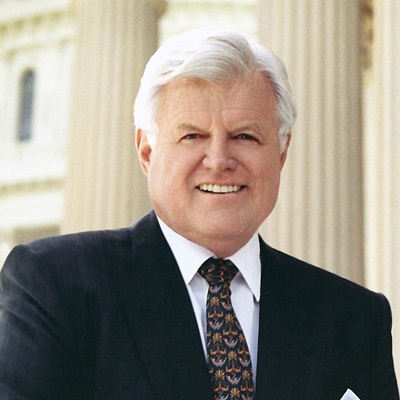From the office of Senator Edward M. Kennedy of Massachusetts
On April 25, 1991, speaking to the Senate Labor and Human Resources Committee, Sen. Edward M. Kennedy opened the National Cancer Act’s 20th anniversary hearing with praise for advances in research, concerns about cancer disparities, and a battle cry: “The War on Cancer is far from won.”
His full statement, as well as a witness list, is available courtesty of NCI, and is reproduced below:
Statement of Sen. Edward M. Kennedy at the Senate Labor and Human Resources Committee Hearing on the 20th anniversary of the National Cancer Act


For Immediate Release
April 25, 1991
Our hearing today marks the 20th anniversary of the National Cancer Act. That legislation, signed into law in 1971, and the amendments which followed, have led to an unprecedented explosion in the understanding of biology at the cellular level, including crucial information about the prevention of cancer and extraordinary improvements in care and treatment.
Before the National Cancer Act, there were no community clinical cancer programs, no national cancer information services for physicians and patients, and no community prevention and control programs. There were much smaller clinical trials, and fewer cancer researchers. Access to specialized care was limited. Only a few comprehensive cancer centers existed.
The expansion of basic research supported by the National Cancer Institute has shed light on cellular processes that were hardly envisioned when we introduced the National Cancer Act two decades ago. By the end of the first decade, the annual budget of the Institute had increased from under $200 million to $1 billion, or 30% of the budget of the entire NIH. Scientists supported and often trained by the Institute under the program expanded our knowledge of the genetic basis· of disease and cell processes.
This deeper understanding led to the development of an entire biotechnology industry. Human proteins were synthesized from cloned genes.
When the deadly AIDS epidemic appeared on the scene, researchers were armed with knowledge and tools that led to the rapid identification of the virus, important diagnostic tests, and useful therapies.
Clinical research and epidemiology supported by the National Cancer Institute have broadened our understanding of the causes of cancer and given us vital means to prevent it. The knowledge that a third of all cancers are caused by tobacco use has clear implications for public policy and individual behavior. More than a quarter of adults use tobacco products, and most started when they were children. Many people are alive and well today because they benefitted from this new information and stopped smoking.
The vision which inspired the National Cancer Act continues to inspire us today. But we will not realize its potential for the future unless we continue to support it.
Sen. Edward M. Kennedy
Cancer treatments and cancer cures have prolonged and saved lives and given us a generation of childhood cancer survivors including my own son. Today, cure rates for those under the age of 20 are 66%; they are 75% for those under 10. Two of our witnesses today are survivors of childhood cancer and will present their experiences.
As we will also hear this morning, too many Americans still do not benefit from the knowledge and resources that have become available in the past 20 years.
Dr. Freedman, the new Chairman of the President’s Cancer Panel created by the Act, will describe his work on the relationship between poverty, race and cancer mortality. We need a much greater national effort to eliminate that shameful correlation and bring the benefits of the War on Cancer to all Americans.
The vision which inspired the National Cancer Act continues to inspire us today. But we will not realize its potential for the future unless we continue to support it.
In the past decade, the budget for cancer research has declined in real dollars. Although the budget of NIH has risen 27%, the budget of the Cancer Institute has declined by 6%. The decline is even steeper, if the AIDS research funds of the Cancer Institute are not counted.
When the Act was passed in 1971 cancer was the disease that Americans most feared. Despite new health issues and concerns, it is still the number one fear today.
The War on Cancer is far from won. This is no time to lose our momentum or call a retreat.
Recent contributions


Video: Big Ten Cancer Research Consortium Introduction
By Rutgers Cancer Institute of New Jersey | July 14, 2021


Hugh Creech: A Fox Chase Family Story
By Fox Chase Cancer Center | July 13, 2021
This column features the latest posts to the Cancer History Project by our growing list of contributors.
The Cancer History Project is a free, web-based, collaborative resource intended to mark the 50th anniversary of the National Cancer Act and designed to continue in perpetuity. The objective is to assemble a robust collection of historical documents and make them freely available.
Access to the Cancer History Project is open to the public at CancerHistoryProject.com. You can also follow us on Twitter at @CancerHistProj.
Is your institution a contributor to the Cancer History Project? Eligible institutions include cancer centers, advocacy groups, professional societies, pharmaceutical companies, and key organizations in oncology.
To apply to become a contributor, please contact admin@cancerhistoryproject.com.











